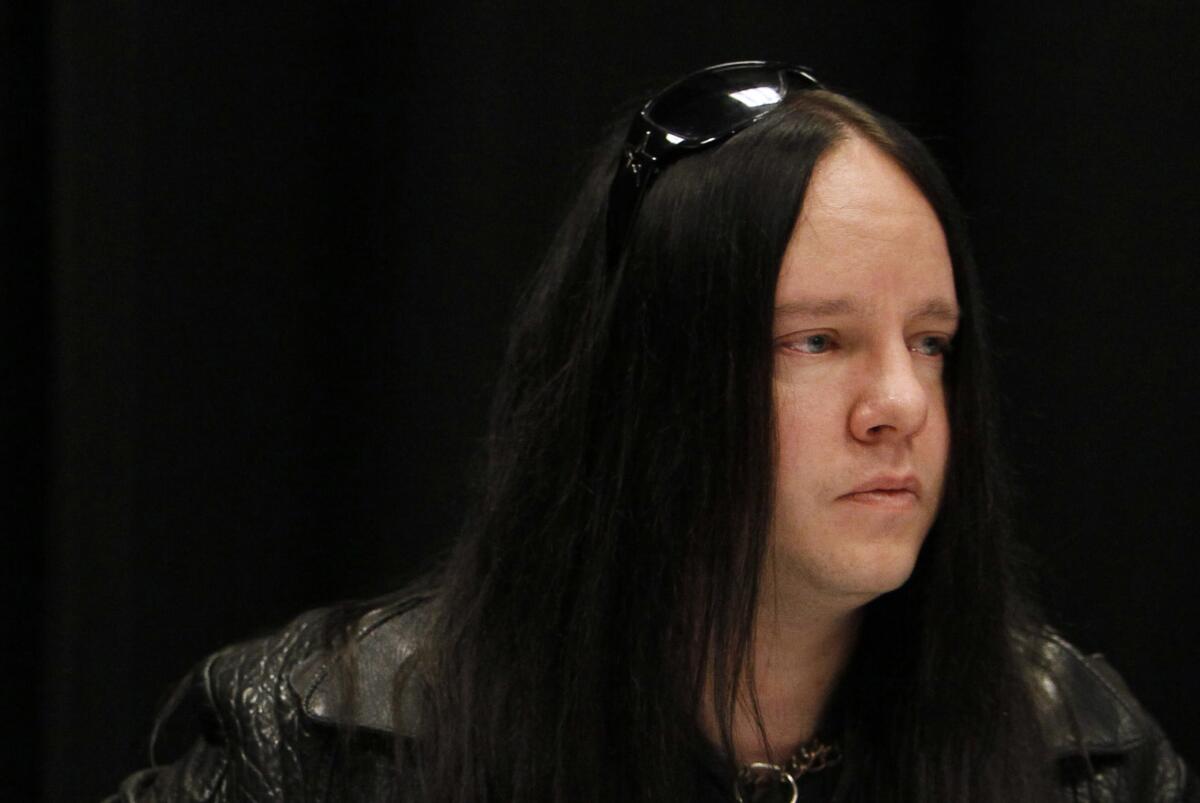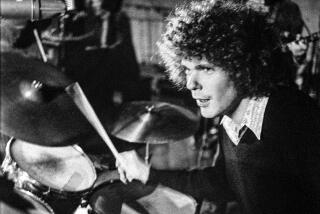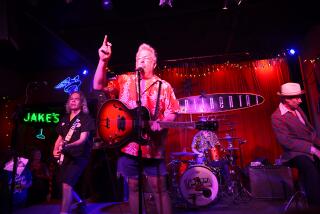Slipknot founding drummer Joey Jordison dies at 46

DES MOINES, Iowa â Joey Jordison, a founding member of Slipknot, who drummed for the influential metal band in its most popular period and helped write many of its best-known songs, died Monday at age 46, his family said.
âWe are heartbroken to share the news that Joey Jordison, prolific drummer, musician and artist passed away peacefully in his sleep,â his family said in a statement. âJoeyâs death has left us with empty hearts and feelings of indescribable sorrow.â
No cause or place of death was provided.
Jordison grew up in Des Moines the eldest of three children and began playing drums at age 8. He was already a veteran of the cityâs metal scene when he founded the band that would become Slipknot in 1995, along with percussionist Shawn Crahan and bassist Paul Gray.
The three talked plans and concepts for the band in sessions at the gas station where Jordison worked. They would name the group after one of their early songs.
The group became known for its rousing, epic live shows, with nine members wearing masks and sinister costumes and creating a massive, sweeping sound that, like other metal bands of the era, included elements of hip-hop.
Jordison often wore a white mask with black paint drippings and a crown of thorns when he performed.
Buzz grew through touring, including show-stealing appearances on the Ozzfest tour, and the band broke through to international popularity with its 1999 self-titled album. That was followed by the even more popular 2001 album âIowa.â
Slipknot became one of the bands credited with keeping hard rock alive and vital in the late 1990s and early 2000s, with grunge-era bands aging and fading.
Jordison was dismissed from the band in 2013. He later said it was because he had transverse myelitis, a neurological condition that left him unable to play.
His family said there will be a private funeral.
More to Read
Start your day right
Sign up for Essential California for the L.A. Times biggest news, features and recommendations in your inbox six days a week.
You may occasionally receive promotional content from the Los Angeles Times.






